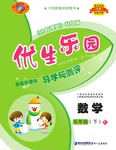题目内容
【题目】A man, who is now sixty-eight years old, went over-seas forty years ago. Just before they __ , the girl he loved gave him as a souvenir, a heart-shaped knot(结)(symbolizing devotion) made of knitting(编织品) __ . And he hung it on his belt __ .
Several years later he __ and had children. His sweet-heart’s looks, __ time went by, became dimmer(更模糊)and dimmer like a landscape picture __ away gradually, and his homeland only appeared in his __ . In the evening of his life he often looked at the knot and sighed.
One day, __ the sight of the knot, his grandson __ getting hold of it as a toy. The boy touched it and tried to __ it. At last he did the trick and got it __ and open.
When it was spread out, it turned to its form as a long __, a very simple wool thread. Only by the clever __ of a beloved girl could the thread be knitted into such a complicated knot. __ love made so many simple things complex in the world.
The old man was thus __ to a great truth. Most of the complaints, __ and hatred in life result from very __ matters . If one is __ mindful of them, they become mental knots. But if one __ the knot, it remains a simple thread or line, __ shape it becomes.
【1】A. married B. returned C. parted D. left
【2】A. cloth B. wool C. silk D. cotton
【3】A. as far B. long before C. so far D. from then
【4】A. got married B. set off C. went away D. grew up
【5】A. while B. after C. as D. though
【6】A. giving B. fading C. dying D. leaving
【7】A. dreams B. thoughts C. ideas D. minds
【8】A. at B. upon C. to D. for
【9】.A. let to B. held on C. insisted on D. held out
【10】.A. unfold B. fold C. tie D. fasten
【11】.A. relaxed B. easy C. loose D. different
【12】A. thread B. rope C. pipe D. string
【13】A. finger B. hands C. head D. arms
【14】A. Unmarried B. Separated C. Heated D. Devoted
【15】A. awoken B. known C. made D. come
【16】A. joy B. kindness C. bitterness D. dislikes
【17】A. light B. simple C. big D. small
【18】A. already B. never C. always D. seldom
【19】A. sees through B. goes through C. cares for D. deals with
【20】A. whichever B. whatever C. however D. whenever
【答案】
【1】C
【2】B
【3】D
【4】A
【5】C
【6】B
【7】A
【8】A
【9】C
【10】A
【11】C
【12】A
【13】B
【14】D
【15】A
【16】C
【17】D
【18】C
【19】A
【20】B
【解析】本文是一篇记叙文。主要讲述了一个居住在国外的老人一直保留着他年轻时候恋人分手时送给他的一个结,总是看着结唉声叹气。有一天,他的孙子把结解开了,他才发现这个结其实只是一条线。世界上很多问题其实都只是一个结,只要看穿了,结也只是一条线而已。
【1】A. married结婚; B. returned返回; C. parted分手; D. left离开。根据“Just before they ___1___ , the girl he loved gave him as a souvenir…”可知,女孩给了男人一个纪念品,故而应该是在他们分手的时候。故选C。
【2】A. cloth布; B. wool毛线; C. silk丝绸; D. cotton棉布。根据下文“a very simple wool thread”可知,此处填wool。故选B。
【3】A. as far和……一样远; B. long before很久以前; C. so far迄今为止; D. from then从那时起。根据“And he hung it on his belt ___3___ .”可知,从那时起,他一直把它挂在腰带上。故选D。
【4】A. got married结婚; B. set off出发; C. went away离开; D. grew up长大。根据“Several years later he ___4___ and had children.”可知,几年后,他结婚生子。故选A。
【5】A. while在……时; B. after在……后; C. as当……时;D. though尽管。 as time went by是固定短语,意为“随着时间的流逝”。故选C。
【6】A. giving给; B. fading逐渐褪色; C. dying染色; D. leaving离开。根据“His sweet-heart’s looks, ___5___ time went by, became dimmer(更模糊)and dimmer like a landscape picture ___6___ away gradually, and his homeland only appeared in his ___7___ .”可知,他心爱的人的面容越来越模糊,像风景画一样逐渐褪色。故选B。
【7】A. dreams梦; B. thoughts思想; C. ideas主意; D. minds意识。根据“His sweet-heart’s looks, ___5___ time went by, became dimmer(更模糊)and dimmer like a landscape picture ___6___ away gradually, and his homeland only appeared in his ___7___ .”及“A man, who is now sixty-eight years old, went over-seas forty years ago.”可知,男人在国外生活,所以他的家乡只能出现在他的梦里。故选A。
【8】A. at在;B. upon根据 C. to到; D. for给。at the sight of…是固定短语,意为“看见……”。故选A。
【9】A. let to让; B. held on继续; C. insisted on坚持; D. held out提供。根据“One day, ___8___ the sight of the knot, his grandson ___9___ getting hold of it as a toy.”可知,有一天,他的孙子看见了它,坚持要把它当玩具。故选C。
【10】A. unfold解开; B. fold折叠; C. tie拴; D. fasten系紧。根据“The boy touched it and tried to ___10___ it. At last he did the trick and got it ___11___ and open.”可知,孙子想把这个结解开,最终他做到了。故选A。
【11】A. relaxed放松的; B. easy简单的; C. loose松的; D. different不同的。根据“The boy touched it and tried to ___10___ it. At last he did the trick and got it ___11___ and open.”可知,孙子把结弄松,然后解开了。故选C。
【12】A. thread线; B. rope绳子; C. pipe管子; D. string带子。根据下文“a very simple wool thread”可知,此处应填thread。故选A。
【13】A. finger手指; B. hands手; C. head头; D. arms胳膊。根据“Only by the clever ___13___ of a beloved girl could the thread be knitted into such a complicated knot.”可知,仅仅靠心爱女孩的巧手,就把一条线织成了如此一个复杂的结。故选B。
【14】A. Unmarried没结婚的; B. Separated分开的; C. Heated热的; D. Devoted忠实的。根据“___14___ love made so many simple things complex in the world.”可知,忠实的爱可以让世界上很多简单的东西变复杂。故选D。
【15】A. awoken意识到; B. known知道; C. made制作; D. come来。be awoken to是固定短语,意味“意识到”。故选A。
【16】A. joy快乐; B. kindness善良; C. bitterness痛苦; D. dislikes厌恶。根据“Most of the complaints, ___16___ and hatred in life result from very ___17___ matters.”可知,此处应该填一个与抱怨、憎恨相近的词,故填痛苦。故选C。
【17】A. light轻的; B. simple简单的; C. big大的; D. small小的。根据“Most of the complaints, ___16___ and hatred in life result from very ___17___ matters.”可知,生活中很多抱怨、痛苦、憎恨都来源于很小的事情。故选D。
【18】A. already已经; B. never从不; C. always总是; D. seldom很少。根据“If one is ___18___ mindful of them, they become mental knots.”可知,如果一个人总是介怀这些,它们就会变成心结。故选C。
【19】A. sees through看穿; B. goes through经历; C. cares for关心; D. deals with处理。根据“But if one ___19___ the knot, it remains a simple thread or line, ___20___ shape it becomes.”可知,只要看穿这个结,它就只是一条简单的线。故选A。
【20】A. whichever无论哪个; B. whatever无论什么; C. however无论怎样; D. whenever无论何时。根据“But if one ___19___ the knot, it remains a simple thread or line, ___20___ shape it becomes.”可知,无论这个结是什么形状,它都是一条线。故选B。

 优生乐园系列答案
优生乐园系列答案【题目】最近我校对高一学生入学一个多月来的学习生活适应情况做了一个调查,情况如下。请你用英语表达下表的调查内容,并提出个人观点。
60%的学生认为 | 40%的学生认为 | 我的观点 |
1.高中学习很有压力; | 1.适应并喜欢高中生活; | …… |
要求:1)词数100个左右;
2)文章开头已给出,但不计入总词数。
参考词汇:course n. 课程;benefit vt. 对……有益;stressful adj. 有压力的 stress /pressure n. 压力; survey n. 调查
Recently, a survey has been carried out in our school whether the freshmen have adapted to the life in senior high school.